To advocate is to speak up, to share the truth, and to stand for what you believe in. As naturists, that’s something we’ve always had to do. For decades we’ve been misunderstood, criticized, and too often labeled unfairly. This has caused many of us to keep our nudism secret and to fear discovery. And now, in the age of artificial intelligence and algorithms, we’re facing a new kind of threat: fake digital images, distortions of who we are, and a perpetuation of misinformation.
I’ve been a practicing naturist for over 30 years. As a former AANR PR chair, a speaker, and a writer, I’ve dedicated much of my time to telling the world what naturism really is: a healthy, human, and life-affirming way to live. But in today’s digital world, our message often gets buried under sexualized stereotypes, ageism, and outright fabrications. It’s time we reclaim our own story.
A recent article in Planet Nude raised concerns about AI-generated “nudity” and how it undermines consent and dignity. The “Fake Nudity Crisis,” as Planet Nude has also called it, is here, and it is being normalized by tools that can fabricate convincing sexual images of anyone from friends to colleagues to children to celebrities—without their knowledge or consent.
This isn’t an abstract thing, it’s painfully real right now. I still think about the young woman in my city who took her own life after classmates spread a fake nude image of her. Technology that should connect us is instead being twisted into tools of shame and harm.
And then there’s the more familiar territory: “perfect” bodies on Instagram, TikTok filters that erase wrinkles and curves, and comments that reduce naturism to something only for the young and thin. When CNN once featured me in a video about nudist etiquette, I was thrilled by how many people responded positively. But one comment stuck out: “Why didn’t they pick someone younger?” I’ve also heard, “Who wants to see old naked bodies?” These remarks are hurtful, not because of vanity, but because they reflect how deeply society struggles to value real, aging, diverse bodies—the very bodies naturism welcomes and celebrates.
Social media hasn’t helped. Non-sexual nudity is often censored or deleted, even when it meets the platform’s own rules. And sadly, even a children’s coloring book depicting a naturist family engaging in wholesome activities has been refused production by a printing company because it doesn’t meet their standards of ‘tastefulness!’ But sexualized, commercial nudity slips through social media under the banners of “fashion” or “fitness.” The double standard couldn’t be clearer: nudity is acceptable if it sells something, but not if it’s simply about being human. And then there is the issue of researching some aspect of nudity online and finding that using the word “nude” has been distorted by the internet and returns explicit, X-rated content.
At my club, Solair Recreation League in Woodstock, CT, we’ve seen firsthand how the media often sensationalizes naturism. That’s why I created a simple policy for visiting reporters: they must agree to portray us honestly and respectfully. It’s not about demanding glowing coverage—it’s about making sure people see the truth of who we are.
But the newest and perhaps most troubling frontier is AI “nudify” apps—programs that digitally strip clothing from photos of real people. These tools are voyeuristic, deceptive, and harmful. They target women and minors most of all, and they reinforce unrealistic ideals instead of celebrating the real diversity of human bodies.
The problem is a lot bigger than naturism. AI-driven imagery and filters feed us back a narrow, airbrushed version of humanity, leaving out the elderly, the disabled, the transgender, and anyone who doesn’t fit a manufactured mold. Naturism, by contrast, insists that every body has dignity, beauty, and worth.
That’s why I believe social nudism and naturism are a counterforce to the digital misrepresentations of the body. We offer something rare: the freedom to be unedited, unashamed, and authentic.
So where do we go from here? We need to speak out. We demand fair treatment on social platforms. We push for ethical AI that protects consent. We keep writing, teaching, and living by example. And most of all, we stop hiding.
Naturism is about health, freedom, equality, and connection. With so much of life these days filtered and fabricated, naturism offers the world a much-needed reminder: there’s nothing more human than being comfortable in your own skin. 🪐



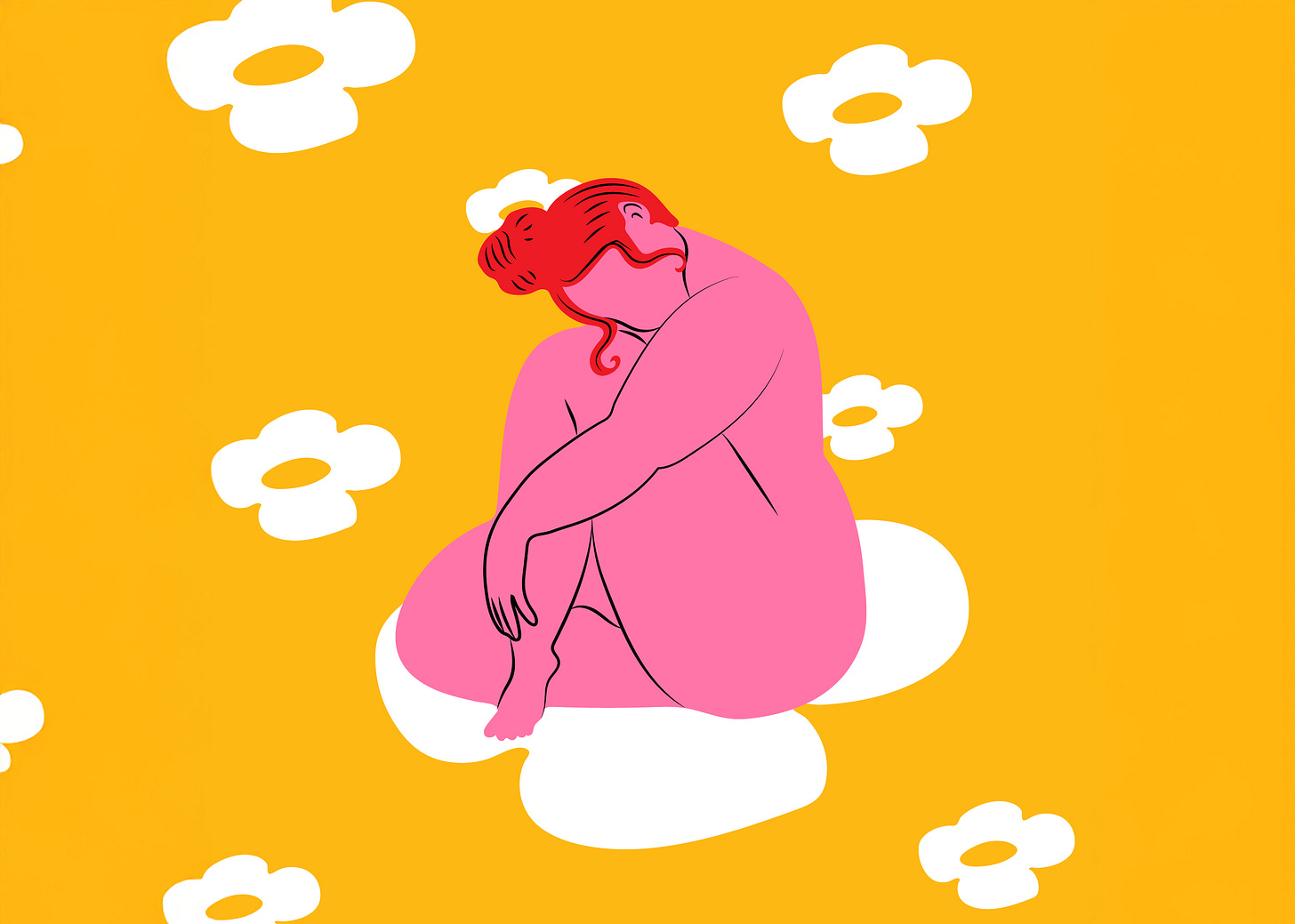
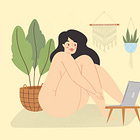
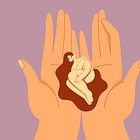

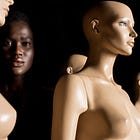
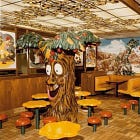

Thank you for sharing your thoughtful reflections on the evolving challenges facing nudists and naturists, especially the impact of AI-generated imagery and the shifting landscape of social media. These technologies, while full of potential, also pose new risks when used to distort, censor, or commodify genuine expressions of body freedom and self-acceptance.
Coupled with the resurgence of restrictive political climates, these forces make it more urgent than ever for naturist organizations and individuals to find allies who believe in the dignity of living authentically. Those of us who embrace nudism and naturism often fall outside conventional norms, and that vulnerability demands both courage and community.
Importantly, many of the strongest allies we can turn to are those who have faced similar struggles; women, ethnic minorities, LGBTQ+ communities, and others whose rights have been historically denied or are still under threat. These groups understand, often intensely, what it means to be misrepresented, silenced, or shamed. By reaching out and building coalitions across these lines, we affirm a shared commitment to bodily autonomy, freedom of expression, and the right to live without fear or stigma.
I’ve long believed that naturist and nudist communities must move beyond isolation and engage in broader movements for justice and inclusion. Together, we can insist that the rights of all people, especially those who challenge societal norms, be safeguarded, so that everyone has the chance to live openly, joyfully, and without shame.
Your essay touches on many vital points, and I appreciate the clarity with which you name both the threats and the opportunities. The path forward will require not just resistance, but creative collaboration and a renewed commitment to mutual respect. Thank you for helping to illuminate that path.
Point 1: AI is not going away. No amount of railing against it will have a significant effect.
Point 2: The problems naturism has faced since the very beginning, over 100 years ago, remain the same: NATURISTS ARE TOO SECRETIVE. The ONLY pathway to greater acceptance requires MANY more naturists mustering the gumption to tell as many possible people they know (extended family, friends, neighbors, etc.) about their participation in naturism, why they enjoy it, what's great about it, why it's neither sexual nor perverse, and why others should consider it.
Yes, of course, the fears most naturists have about opening up are obvious - embarrassment, ridicule, potential loss of friends or employment, etc. The issue is whether naturists choose to remain in the closet as naturism itself withers on the vine. Or do they want to help promote naturism - because if enough do so, then naturism can grow again. The benefits: adding many NEW friends who also enjoy naturism, reversing the closing of naturist venues, strengthening existing naturist organizations, and establishing new ones locally and regionally.
Dr. Krozy has done the right thing by attaching her real name (I assume) to her post. How many commenters will do likewise? There seem to be approximately 40 Substacks dealing with naturism (though most aren't very active). My real name is on the byline of my Substack (Revitalizing Naturism). But the majority are pseudonymous. And that's even more true, unfortunately, of those who post comments.